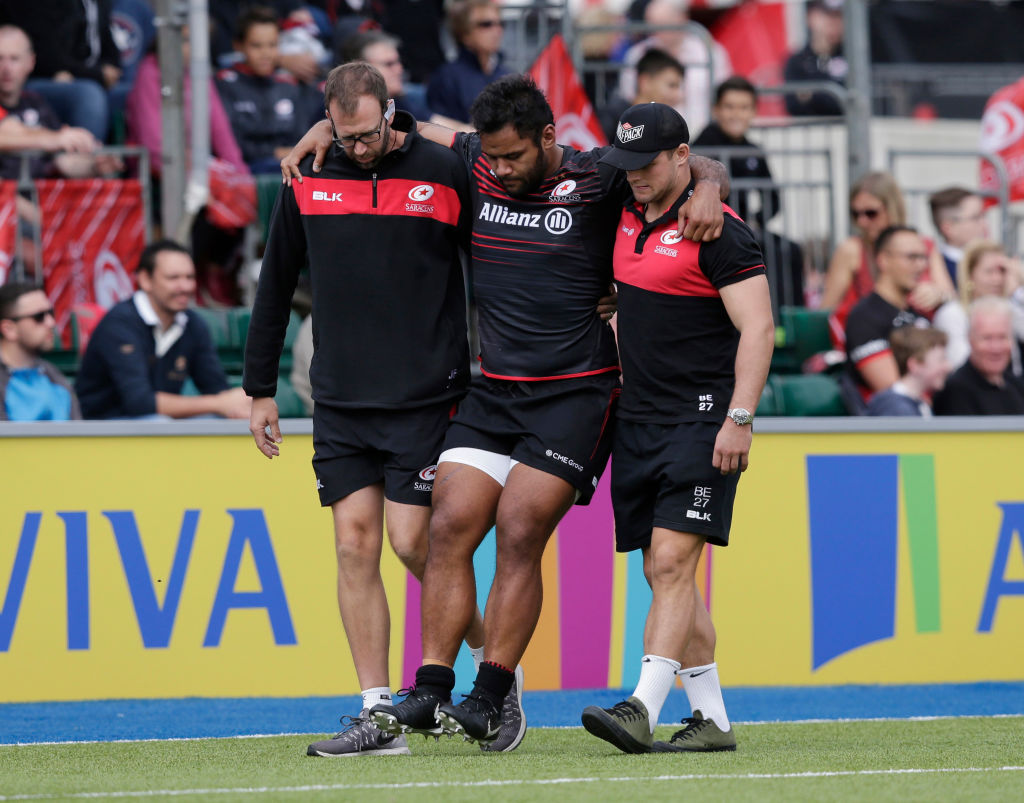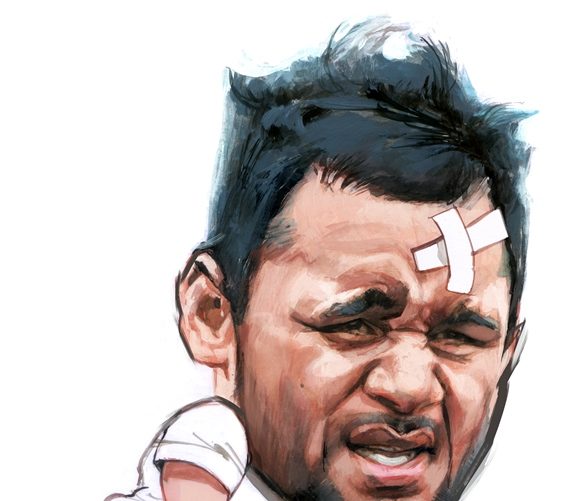
By Nick Cain
PLAYERS and coaches in the Premiership have started to align in their resistance to the World Rugby blueprint for a ten to eleven month season in Europe, and England in particular. The new global season schedule from 2020 to 2032, which World Rugby chairman Bill Beaumont hailed in March as providing “certainty and stability”, appears to have done the exact opposite.
Senior England players were the first to voice discontent, with Billy Vunipola, Joe Marler and Ben Youngs warning that strike action is being considered by players in order to bring the game’s administrators – with Beaumont and Premiership Rugby chief executive Mark McCafferty foremost – to their senses over player welfare.
Vunipola has become a billboard for player burn-out having sustained three significant injuries in less than a year. The Saracens No.8 damaged his knee against Sale last weekend having only just returned to action after shoulder surgery. Vunipola is 24.
Last month his back row team-mate at Saracens, Will Fraser, was told by a surgeon that after ten operations on different parts of his battered body he must retire. Fraser is 27.
Last week Henry Trinder conjured a brilliant try for Gloucester against Worcester which had Sir Clive Woodward in raptures, saying that the centre would be hailed a genius if he was an All Black. Trinder’s biggest problem is that he has hardly been seen for three years because of two anterior cruciate reconstructions, as well as shoulder and hamstring injuries. Trinder is 28.
The highest profile casualty is Manu Tuilagi, whose absence from the England line-up for three years following chronic groin and shoulder problems has been punctuated by sporadic appearances for Leicester before he breaks down again. Tuilagi is 26.
The list of top tier burn-our casualties is increasing with every season, and with it a worrying trend of players being forced to retire much earlier in their careers.
This week there appeared to be a splintering in the ranks of senior English administrators over player welfare when Stephen Brown, the new RFU chief executive, said that Premiership Rugby’s plan for the extended season had not been approved by the Professional Game Board (PGB).
The PGB is the body that runs the elite game in England, and consists of representatives from the RFU, Premiership Rugby, and the players’ union, the PRA. However, rather than being a transparent vehicle for good governance, the PGB has become a shadowy, semi-accountable body that is totally out of place in a professional sport.
This may well explain how and why McCafferty went to a World Rugby meeting in January in San Francisco to discuss a new global season under the illusion that he had a mandate to extend the English season by two months.
Thankfully, Brown has a different perspective, which has player welfare at its core, as he outlined earlier this week: “The players have a voice, and we need to listen to them. We have no game if we have no players. A strike is a concern, and we cannot ignore it.”
At this week’s European Cup launch the England and Northampton captain Dylan Hartley added his weight to the player position, as did Wasps skipper Joe Launchbury.
Hartley said, “I can’t speak for every player, but the general feeling is that an extended season is not welcome. Player welfare is paramount, both mental and physical.”
Launchbury put more flesh on the bones: “Every week is a massive game. To try to expand that and make the season longer is hard to see from the players’ points of view. You need that mental break, and that’s almost as important as having a physical break. You need that five week rest that the RPA fought extremely hard for the players to have.”

Christian Day, the Northampton lock who is PRA chairman, says the most serious oversight is that the players have not been asked for their views on and extended season. “It’s a big kick in the teeth for the players. If you are not going to consult the people who earn you the money, they’re probably not going to be too happy that you’ve extended their season by a month.”
There is also little support for an extended season among leading rugby directors and coaches. This is significant because they have inside knowledge about the current rate of attrition.
Saracens rugby director Mark McCall said: “No one wants to extend the season. The reasoning, as I understand it, is to have more international players available for Premiership games – but they can’t play any more games.”
Gloucester boss David Humphreys said most coaches agreed: “We are all of the same view that player welfare has to be at the top of the list. We want our players to have long careers – and that means a proper rest period.”
All the signs, whether from players or coaches, have the same message for Premiership Rugby, and for World Rugby and its flawed global season. Namely, that a nine-month season is plenty, and that from a player welfare perspective, enough is enough.























